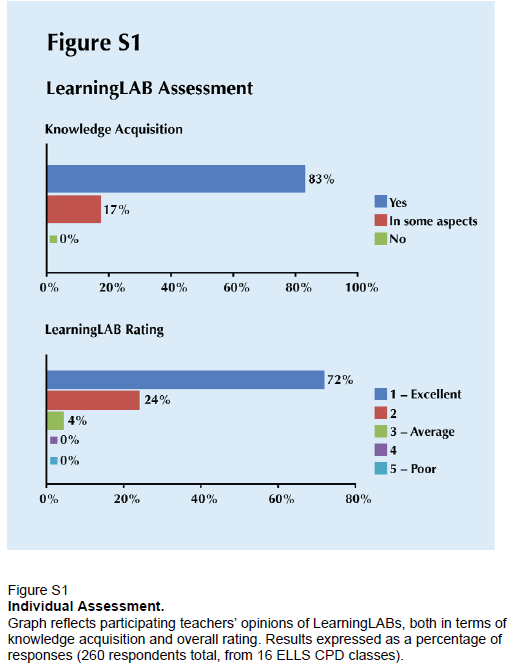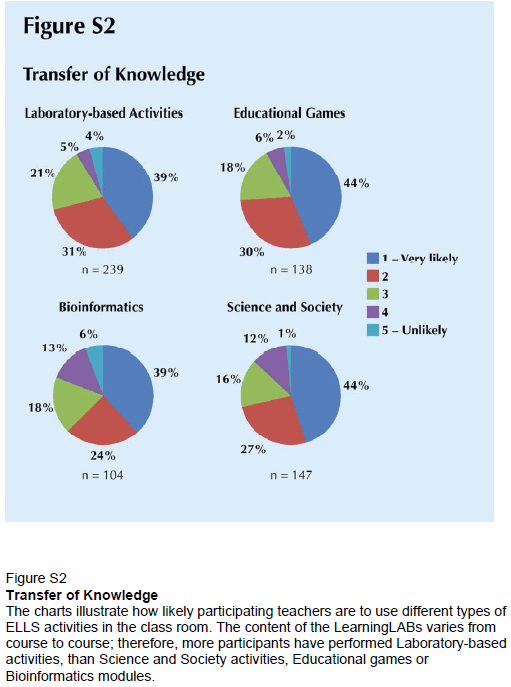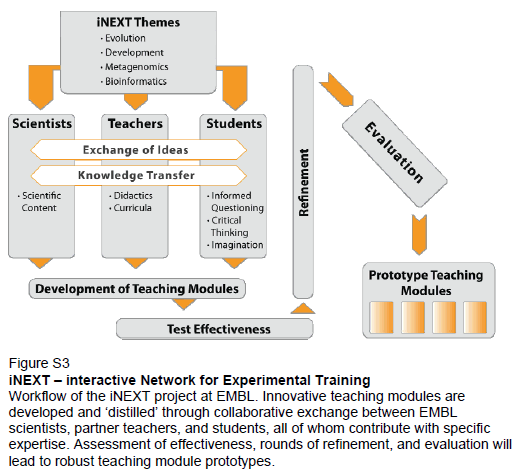|
|
|
|
|
|
|
News & Views item - September 2009 |
![]() The Hard Yards For Science Teaching. (September 14, 2009)
The Hard Yards For Science Teaching. (September 14, 2009)
In "Building the Education Revolution" the Rudd Labor government is making "a $16.2 billion investment over three financial years – 2008/09, 2009/10, 2010/11 and a critical component in the Australian Government’s Nation Building – Economic Stimulus Plan".
That the investment is much needed is hard to argue against, but it is also the easy part of an education revolution. Earlier TFW past the comment: "Putting up a building and equipping it with inanimate objects is easy. Adequately staffing it? That takes nuance and dedication.
A recent "Education Forum" in the journal Science discusses "Introducing Modern Science into Schools", and is written by staff of the European Learning Laboratory for Life Sciences (ELLS), and initiative of the European Molecular Biology Laboratory (EMBL).
|
|
The authors' opening paragraph is as applicable to Australia as it is to Europe:
Young people in Europe are becoming increasingly disinterested in science at school and are moving away from studying science at university, making it difficult to recruit the engineers and scientists needed to support technology-based economies. Several aspects of contemporary science teaching appear to be discouraging students: The pedagogy lacks variety, the quality of teaching is less engaging than for other subjects, and the content often appeals preferentially to male students. Most pedagogy is heavily reliant on transmission of facts and often lacks... an understanding of how we know that scientific facts are true. Many current teaching methods and curricula are designed to prepare students to pass tests by rote learning, but fail to develop cognitive skills needed in science. Coursework investigations are also widely criticized for being rather artificial exercises, which do not reflect the true nature of science as a process of inquiry.
That said, the powers that be can design the best of curricula but if the quality of the individuals entrusted with the teaching are incompetent the vehicle is saddled with an inadaquate engine. The authors agree that "[m]any teachers have not worked as researchers and find it hard to understand the methodology of science. Moreover, they are often hesitant to teach subjects in which they are not expert. If they set up predictable experiments, with expected results, it may impair the development of students' analytical skills".
After nearly two years of Australian Labor being in government, neither the Minister for Education, Julia Gillard, nor the Minister for Science and Research, Kim Carr, has signally or in tandem enunciated a "roadmap" to address the dearth of trained teachers of science, technology, engineering and mathematics (STEM) in our secondary schools. And then there is the further problem that "most educational systems have not developed effective mechanisms to keep teachers up to date with contemporary science, which leaves teachers with limited access to continuing professional development (CPD)".
The European Learning Laboratory for Life Sciences (ELLS) addresses one aspect of the problem with regard to the life sciences. It "provides continued professional development (CPD) for European high-school teachers, based on state-of-the-art molecular biology research at EMBL, in an approach that combines formal teaching and exercises with informal discussions. Since its inception in 2003, over 700 teachers from 22 countries have participated in ELLS CPD programs. The main aim of ELLS is to empower teachers to develop innovative teaching material and strategies, often in parallel with EMBL scientists who are closely involved in the design of the resources". It does this in part by "regularly host[ing] small international groups of high-school teachers to work alongside EMBL's scientists, building teachers' confidence and expertise to conduct such wet-lab activities at school. ELLS's inquiry-based modules require relatively simple lab materials, and the facility also lends equipment to local schools".
ELLS has also developed "scientific games" simulating molecular biological techniques practiced in modern laboratories such as the microarray game. In addition, and as might be expected wet lab and online facilities are combined for secondary school teaching. As an indication of the sophistication of the approach "[a]reas of modern molecular biology such as systems biology, bioinformatics, molecular evolution, and molecular medicine are included in high-school curricula, but teaching resources are limited. In this sense, ELLS can provide valuable resources for teachers".
Finally, "EMBL has recently launched the interactive Network for Experimental Training (iNEXT) in which science education researchers and EMBL scientists assess inquiry-based approaches and materials, not only to evaluate their impact on teachers' competency and confidence, but especially to assess their effectiveness in helping students understand and retain scientific concepts. iNEXT is intended to provide long-term practical support for teachers and students..."
For Australia to develop a national program (which must include tertiary institutional upgrading of staff) to attract individuals with sufficient ability and interest to fill the positions required in secondary school to teach STEM subjects would require bipartisan will over a minimum of three to four elections, and then to augment it with a program of CPD.... can it, really happen?
______________________________
EMBL is currently assessing the effectiveness of the ELLS approach.
Below we reproduce three charts which are supplementary to the Science article.

______________________________________________________________

______________________________________________________________
